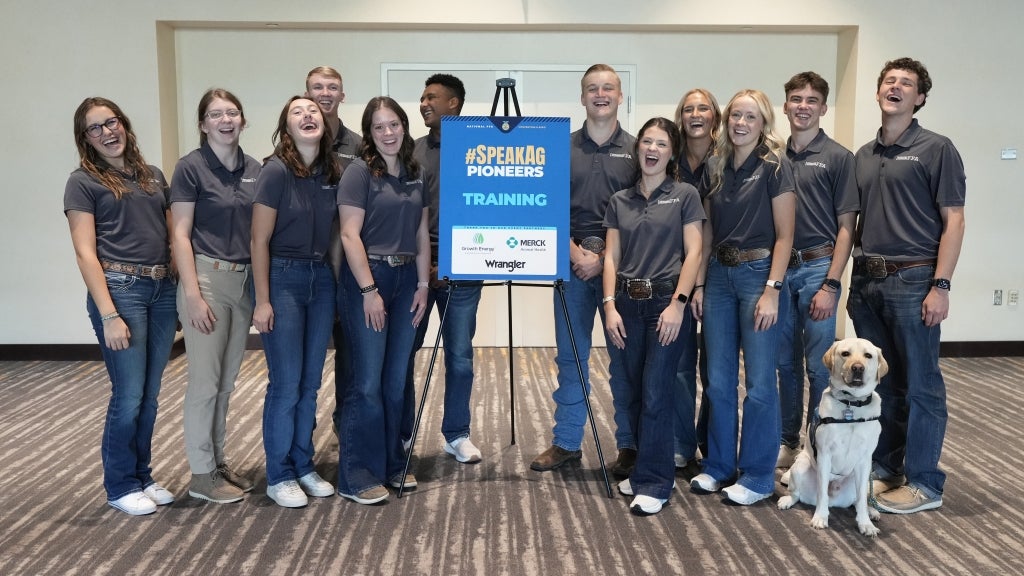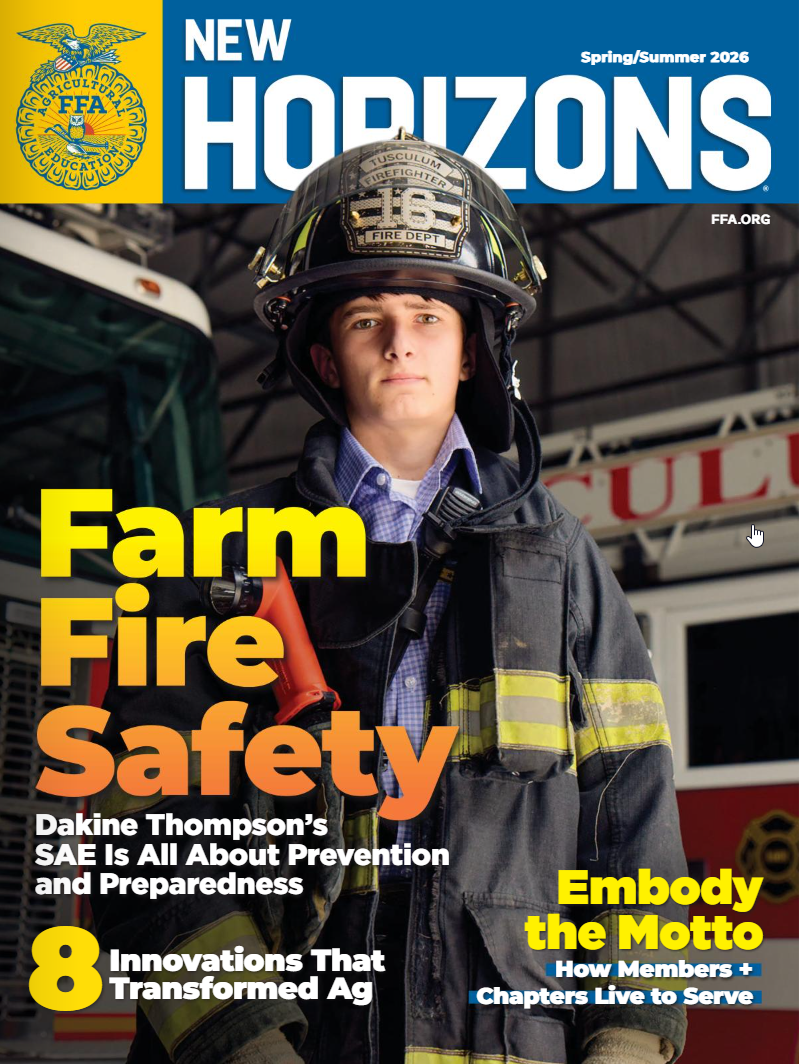5 Agriculture Issues With Local Impacts

Becoming a #SpeakAg Pioneer through the National FFA Organization is a great way to grow your skills, make new friends and have fun.
From advancements in technology to a growing focus on sustainable practices, agriculture has changed drastically throughout the last century. Being informed about topics and developments that affect agriculture can help you better understand the industry, engage in more meaningful conversations and make informed decisions.
We recently chatted with Inga Peterson (front row, third from left), Romulus Hiner (back row, far left) and Porter Hand (back row, third from left), three 2024-25 #SpeakAg Pioneers, about current issues affecting their states and the need for positive changes. Read on to learn about topics affecting agriculturists in Alaska, Montana and South Carolina.
1. Alaska lacks statewide transportation systems.
Since it’s significantly larger and more geographically varied than most states, Alaska doesn’t currently have a transportation network that serves all of its regions.
“I recently attended the Alaska Food Policy Council Conference, and the conference was located off the road system,” says Peterson, the 2024-25 Alaska FFA Association president. “There was no option to drive, and my first flight was cancelled due to weather. Even on the road system, it’s common to have weather delays and for shipments to take days to transport. This poses a food security risk when we are importing food to communities. It’s also a roadblock to people interested in becoming producers, as they fear for their ability to transport to larger markets.”
2. Alaskan farmers and ranchers struggle with limited access to resources.
The state has very few inspectors, loan agents and disease identifiers, and it does not have a dedicated Department of Agriculture.
“Governor Dunleavy recently introduced an executive order for the creation of the Department of Agriculture,” Peterson says. “Currently, we only have a Division of Agriculture under the Department of Natural Resources that must contend for resources with oil and gas interests. Unfortunately, the executive order was overturned, highlighting the lack of support the state can provide to farmers and ranchers. This creates a big statewide disconnect, as everyone turns elsewhere for support.”
3. Montana farmers face drought and water management challenges.
Prolonged drought conditions have negatively impacted crop yields and livestock production. As of April 29, 2025, about 57% of Montana was under drought conditions, and another 17% was experiencing abnormally dry conditions.
“Innovative water management strategies, such as precision irrigation and drought-resistant crops, are becoming essential,” says Hiner, the 2024-25 Montana FFA Association vice president. “Addressing this issue is critical for maintaining agricultural productivity and supporting rural communities.”
4. Farm ownership in Montana is declining at an alarming rate.
The number of farms in Montana has decreased by 10.3% since 2017.
“This decline raises concerns about the sustainability of family-owned farms and the cultural heritage they represent,” Hiner says. “Supporting small-scale farmers and promoting policies that encourage farm ownership are vital for preserving Montana’s agricultural identity and ensuring economic diversity.”
5. In South Carolina, urban sprawl is causing a rapid loss of viable agricultural land.
South Carolina is one of the fastest-growing states in the nation. In the past two decades, Hand says its coastal areas have seen a significant increase in urban expansion.
“I’ve seen this urban sprawl take agricultural land firsthand,” adds Hand, the 2024-25 South Carolina FFA Association region one vice president. “A few years ago, my grandparents moved and sold their farm to someone who immediately turned around and sold it to a developer. Within a year, the prime agricultural land my grandpa had been using for decades became a housing development.”
Being a #SpeakAg Pioneer, a National FFA program sponsored by Growth Energy, Merck Animal Health and Wrangler, has taught Hand to pay attention to the important stories unfolding around him and inspired him to give a voice to people who wouldn’t have a chance to have their story told otherwise.
“It’s important to pay attention to the loss of agricultural land because if we don’t have land, we don’t have agriculture,” he says. “We don’t have crops, livestock, lumber or anything. Having more people aware of the issue means having more ideas to combat it, more people to advocate for things like vertical expansion (as opposed to horizontal expansion) and more people to fight on behalf of agriculturists.”
Become an Advocate for Agriculture
If you’re interested in agricultural policy, law or international relations, the National FFA Agricultural Issues Leadership Development Event might be your strong suit. Grab a few friends or classmates and start making strides.


